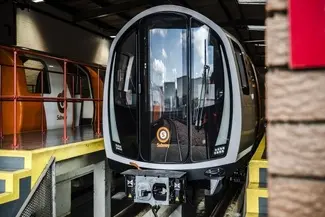Shipping industry acts on decarbonization at COP23

An international shipping industry group has cooperated to drive the decarbonization agenda with a business-focused approach that pushes ahead of regulatory mechanisms at the 23rd session of the Conference of the Parties (COP 23), to the UN Convention on Climate Change (UNFCCC).
The shipping industry group gathered in Bonn to create a draft Action Plan that maps out how shipping can contribute to GHG reductions and decarbonization in order to comply with the high ambition climate change target of limiting global temperatures to 1.5oC, as indicated in the Paris Agreement.
The summit decided that the international shipping industry hase the technology toolbox required for decarbonization. However, some solutions required are still in late-stage development, not yet mature, or require significant upscaling for deployment and market readiness.
Also, investments in alternative fuels are key for shipping to decarbonize in the longer term, participants concluded.
The high ambition approaches and conclusions made by participants at the summit for the baseline requirements of a decarbonization Action Plan were:
The building of demonstrator vessels for the trialling of new technologies.
The adoption of a science-based target for carbon emissions.
The adoption of a much tighter, more robust Energy Efficiency Design Index (EEDI).
The creation of those ready to collaborate across the industry in tackling the 1.5oC decarbonization challenge.
The definition of ‘transparency’ in the industry and the adoption of that transparency in relation to emissions and operational data.
The reassurment that the decarbonization debate is broadened to involve all stakeholders.
The development of more global forums based on focused working groups, including an Asia advocacy group.
The adoption of a multiplier ‘Ambition’ effect to encourage other actors to engage in decarbonization projects and the attraction of new talents to modernize the industry.
Commitments made at the summit regarding the decarbonization Action Plan:
Making a container ship available as a demonstrator vessel for low carbon and zero emissions technologies.
The work towards the establishment of a CO2 levy to stimulate the uptake of clean technology and low carbon operations.
The creation of a similar summit of the same structure and impact for retailers and local ship owners on a regional basis.
The continuation of the ‘technology toolbox’ discussion and building of a robust performance verification process.
Finding shipping companies who will go beyond legislation.
The creation of an innovation/engineering challenge prize to stimulate the bringing of technology and designs to market.
The development of a system that brings forward benefits of emissions saving operational changes and adoption of low carbon technology, prior to mandated emissions levies.
The change of company operations to collaborate more intensively with equipment suppliers and to further embed more ambitious R&D into company structures.
The creation of a concerted effort to raise the profile of the shipping emissions issue with consumers.
The creation of a platform for cross-stakeholder engagement.
The collaboration between Think-Tanks and NGOs that are active in the sector and to pool resources.
Greater collaboration of research & technology sharing with developing countries.
A brief regarding the main challenges and opportunities of shipping industry decarbonization in addition to the commitments that have been made was delivered to UNFCCC delegates, National delegation focal points, the UNFCCC secretariat and all relevant national policy makers to influence discussions around shipping transportation at the COP23 proceedings, after the summit.
Finally, an Action Plan for decarbonization will also be developed.















![AIRBUS A380 [MORE THAN 600 PASSENGER’S CAPACITY PLANE]](https://cdn.tinn.ir/thumbnail/4jCp4EQvCU0b/IjHVrSYQrIAqIzXuTzADR7qLYX4idQT4nfq__26E5SCUPLMqfhWkWajvuO9Wfq1ql1TjV4dhkrHliNQU82kMpo2NNftT_NGEwHc9KXtN_rk731bmifa2IQ,,/airbus-a380-structure1.jpg)

Send Comment